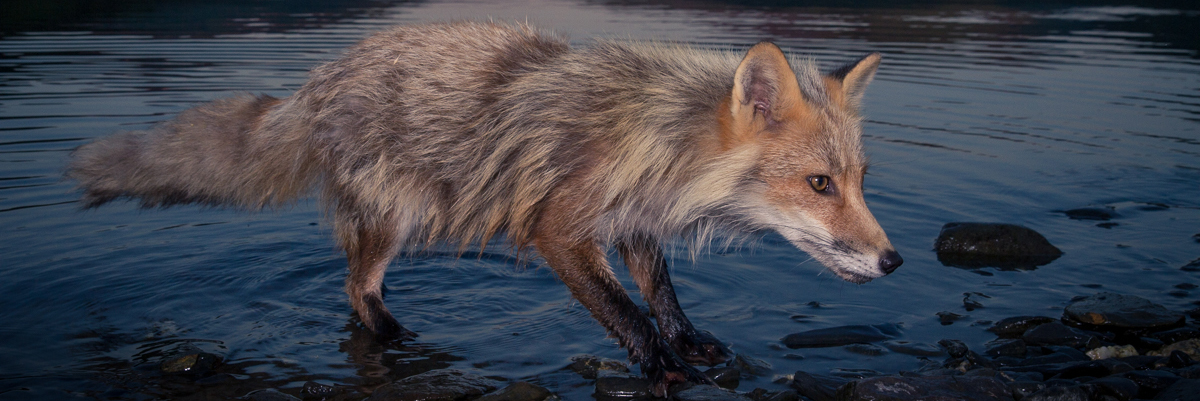photo by Jonny Armstrong
Graduate students of the Department of Fisheries Wildlife and Conservation Science value scholarship in all its forms - discovery, integration, application, and teaching. We value understanding for its own sake, for the betterment of people, and for the conservation of the natural world.
Learning outcomes for PhD Students
Students will produce a professionally written thesis that meets peer-review publication standards. Students will be able to prepare and deliver a professional quality oral presentation. Students will be able to effectively communicate in discussions with peers and the general public. Students will demonstrate the ability to solve problems, evaluate evidence and recognize bias; ability to adjust conclusions/approaches in face of new data or interpretation tools. Students will demonstrate in-depth knowledge of the area of expertise and general breadth in the field. Students will demonstrate an understanding of ethical issues in fisheries and wildlife sciences.
PhD in Fisheries Wildlife and Conservation Science
The PhD program emphasizes research concerning the interaction of humans, habitats, and species through quantitative modeling of fish and wildlife population dynamics, landscape ecology, and human dimensions across terrestrial, marine, and freshwater ecosystems around the globe.
Areas of Concentration
Aquaculture, conservation biology, fish genetics, ichthyology, limnology, parasites and diseases, physiology and ecology of marine and freshwater fishes, stream ecology, toxicology, water pollution biology.
Animal-habitat relationships; behavior; conservation biology; community studies; ecology of birds, small and large mammals including cetaceans and pinnipeds, and herptiles; ecology of avian and mammalian predators; ecology of waterfowl and upland game birds; effects of parasites, diseases, and environmental contaminants; nutrition; population; population dynamics; reproductive biology; toxicology of pesticides; wildlife ecology; wildlife-forestry interactions.
Interdisciplinary social sciences and applied research on the human dimensions of natural resource management including communication science, decision-making, conservation psychology, impacts of outreach and engagement, and understand the social, cultural, economic, and political dimensions of human-wildlife interactions.
Partnerships and Collaborations
Students may complete their research with faculty at the Hatfield Marine Science Center, an extended campus facility located in Newport.
The Oregon Cooperative Fish and Wildlife Research Unit has active research programs funded in part by the Oregon Department of Fish and Wildlife and the Biological Resources Division of the U.S. Geological Survey.
The Agricultural Experiment Station, the Sea Grant program, Forest Science Laboratory and other organizations fund major research projects.
The department maintains extensive collections of vertebrate species, which are curated by Alvaro Cortes (fish), Clinton Epps (mammals), and Bruce Dugger (birds). The Oregon State Ichthyology Collection is also available to view online.
How to Apply
Our Department's decision for admission is not the date of application but your acceptance by a faculty advisor. Please review more information on How to Apply prior to submitting an application.
Current Students
Contact Us
If you have questions about any of the graduate programs please contact the Graduate Program Coordinator.

